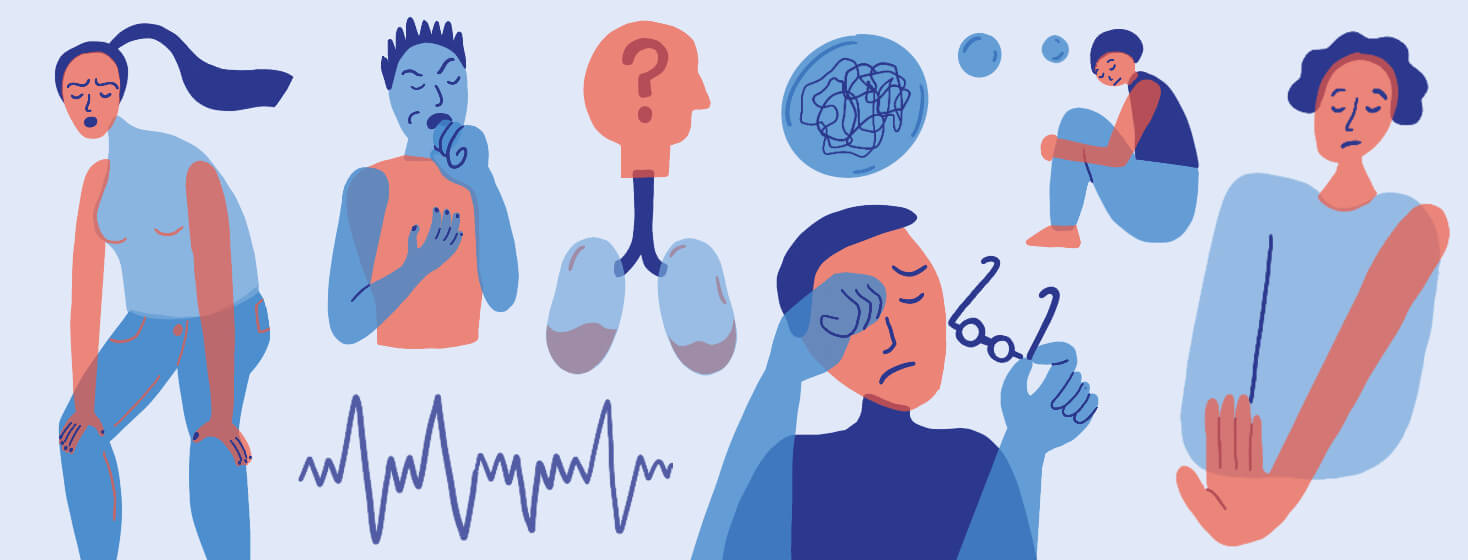Is Fatigue A Symptom Of Asthma?
We decided to ask our advocates a series of questions we found popular amongst our community members. One question, in particular, is the question surrounding fatigue. See how our team of respiratory therapists and asthma educators answered the question, "Is fatigue a symptom of asthma?"
Fatigue can occur after a flare-up
Response from Theresa Cannizzarro, RT:
Yes! While fatigue isn’t one of the more common asthma symptoms, it definitely can happen. When your body is working harder to breathe, it makes your body tired. Your body is having to compensate to bring more oxygenated blood from your lungs to the rest of your body so, in turn, you feel overall fatigued. Also, after a significant asthma flare-up, you may feel pretty fatigued for a period of time while your body recovers to its normal healthy state.1,2
Is fatigue a sign of asthma?
Response from Leon C. Lebowitz, BA, RRT:
Asthma is characterized by hypersensitivity of the airways. We tend to describe the main symptoms of asthma as coughing, wheezing, shortness of breath, and chest tightness, which may include pain or pressure.3
Waking up at night and concomitant fatigue are characteristics of poorly controlled asthma. Inadequate rest and sleep during the night subsequently impacts normal functioning during the day. Again, this may manifest itself as a feeling of being tired and/or feeling constantly exhausted.3
Persistent bouts of coughing combined with increased use of one's accessory muscles during asthma exacerbations often results in muscle fatigue and sometimes, muscle pain. The constant wheezing that can accompany exacerbations also contributes towards a feeling of being weakened, tired, and fatigued.2
The best approach to treating the fatigue that is associated with one's asthma is to keep it under control. Signs that asthma may be out of control include more frequent use of one's rescue inhaler, increased shortness of breath, self-limiting physical activities because of one's asthma condition, and any other signs that are specific for the individual.2
Coordinating medical management with appropriate treatment plans and medication regimens can assist in bringing these symptoms under control. A physician plays a major role in this coordination. Vigilance and attention to avoiding triggers that tend to exacerbate symptoms goes a long way towards prevention as well.2
Asthma symptoms may lead to fatigue
Response from Lyn Harper, MPA, BSRT, RRT:
Yes! A person may be fatigued from the strain caused by labored breathing and shortness of breath. Quite simply, being unable to catch your breath is exhausting! However, you may also experience fatigue from lack of sleep due to other asthma symptoms; coughing, anxiety, and shortness of breath. Fatigue is also a symptom of oxygen levels in the blood being low, which can happen when we’re experiencing an exacerbation of symptoms.2
Response from John Bottrell, RRT:
Asthma affects every asthmatic differently. For some of us, feeling tired is an early warning symptom. When you feel it, you know it's time to take swift actions to prevent a full-fledged asthma attack. This is true even when you have controlled asthma.
Fatigue may be more common when asthma is poorly controlled. In such cases, asthma can affect your sleep. And, just feeling short of breath can make you feel tired, even exhausted. So, it's always a good idea to pay attention to what your body is saying earlier rather than later.2
The earlier you take action the easier it is to reverse this and other symptoms, so you can feel normal once again. It's also a good idea to work with your doctor to develop a daily treatment regimen so you don't feel this symptom very often. Plus, it's also a good idea to work with your doctor on developing a plan so you know what to do when you feel this and other asthma symptoms.
Fatigue and asthma may coexist
Response from Ms. Al Veoli, AE-C:
Fatigue can be associated with asthma in many ways. Feeling tired can be an early warning sign that an asthma episode may be coming. Since asthma can worsen at night, symptoms can keep you from getting a good night’s sleep. Fatigue is also common after having an asthma episode, so you may feel tired or even exhausted for several days or more.2
Editor’s Note: The information in this article cannot be substituted for medical advice. Always consult your doctor before beginning, ending, or changing treatments.

Join the conversation